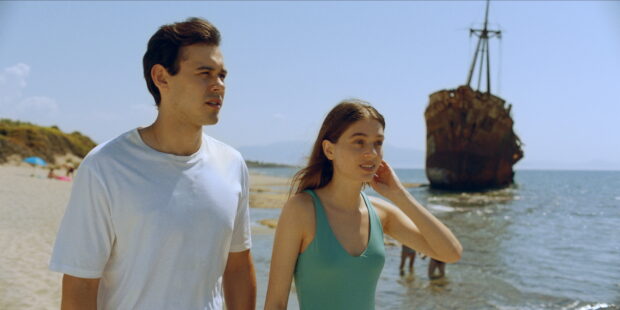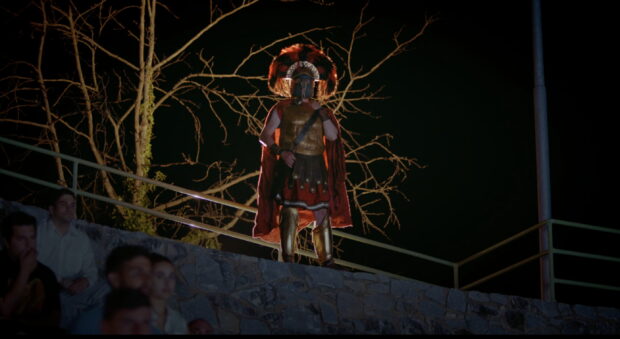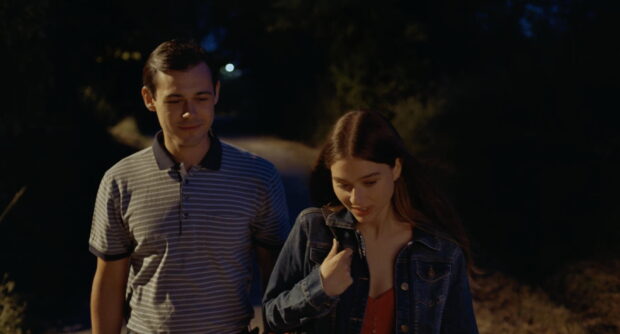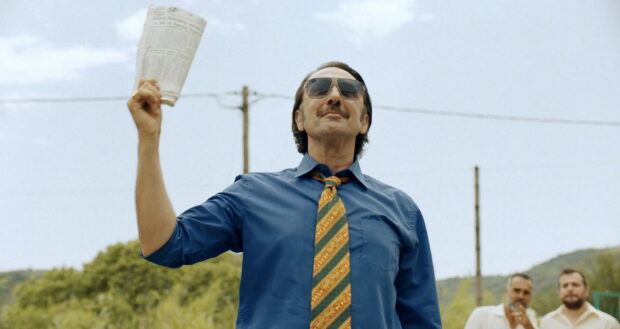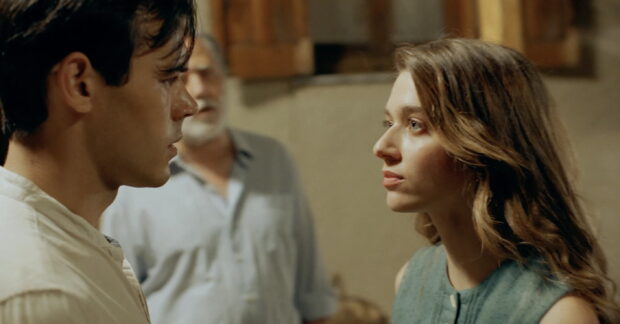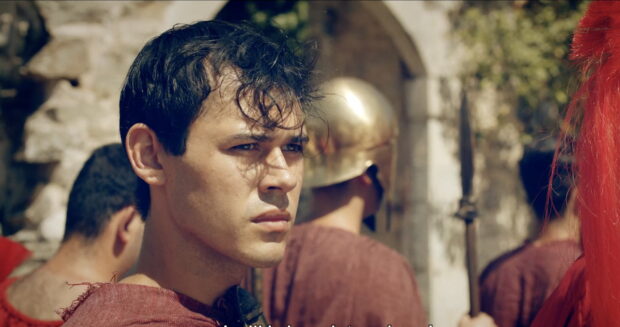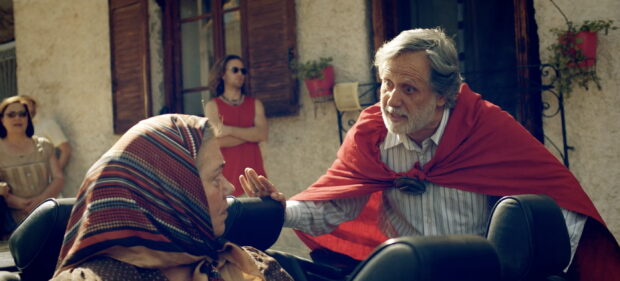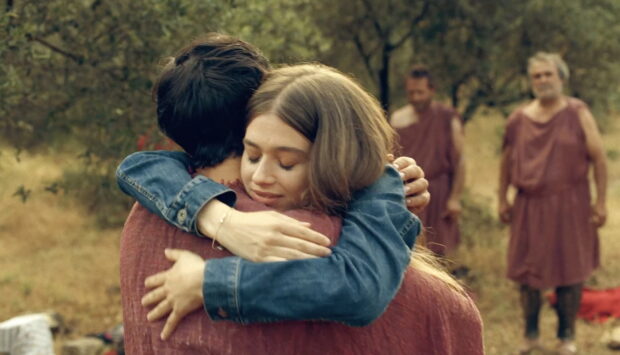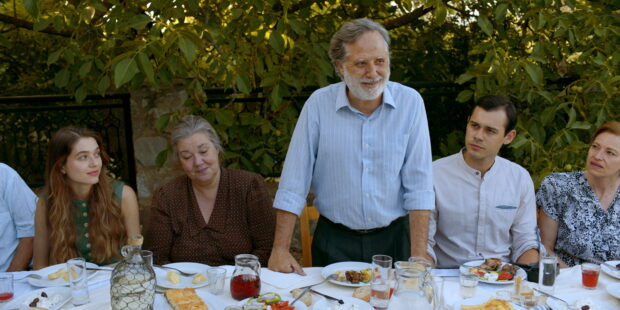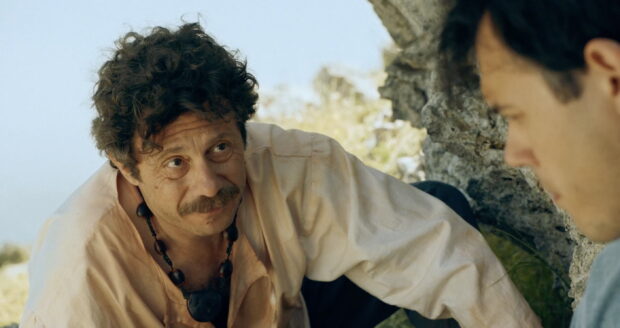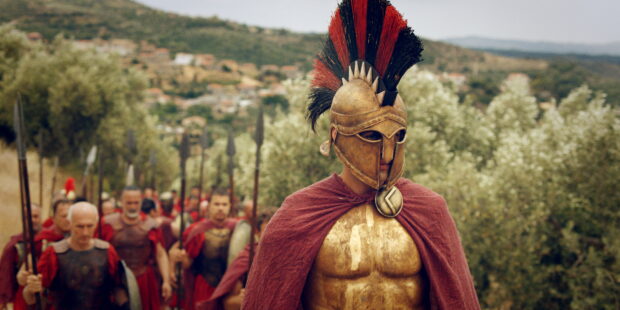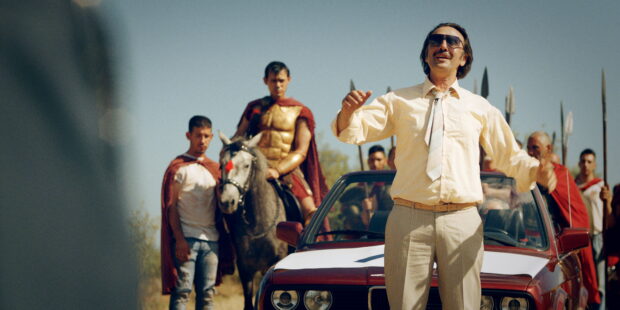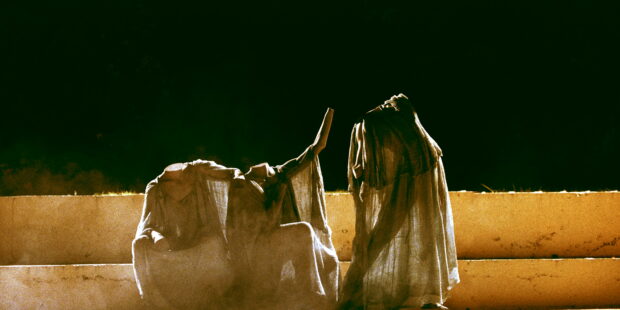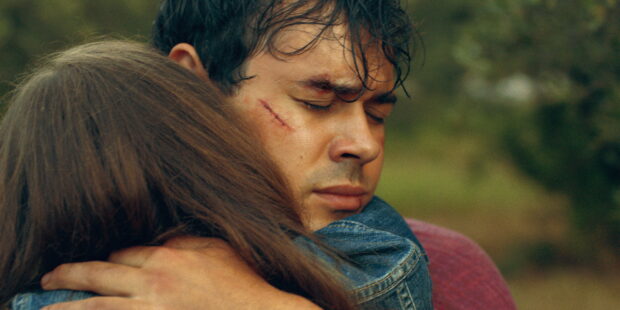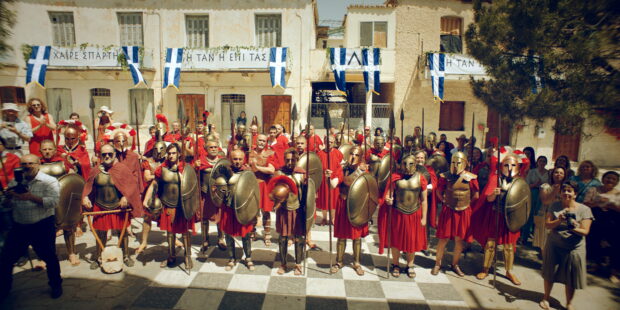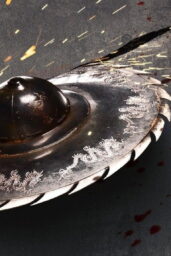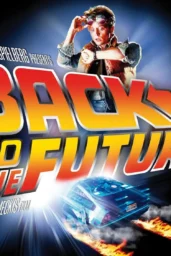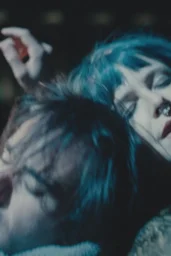There's a moment in A Spartan Dream when our young Greek-American hero, disillusioned and sweating through a failing New Jersey summer, turns his back on reality — and history itself — and declares war. On Athens. In 1987.
Yes, that's the premise. And if that line alone makes you chuckle or cringe, you'll know immediately if this film is for you.
Freestyle Digital Media has just picked up North American rights to A Spartan Dream, a romantic adventure that doesn't pretend to be anything less than a sun-drenched, myth-drunk fairy tale — wrapped in denim jackets and diner grease. The film makes its U.S. theatrical/VOD debut in five cities starting Friday, August 15, with a DVD release planned for September.
Let's get the essentials out of the way:
Theatrical release cities and venues (August 15–22):
- New York – Village East by Angelika
- Los Angeles – Laemmle Glendale
- Chicago – Pickwick Theatre
- San Francisco – The Lot (San Ramon)
- Detroit – Emagine Canton
This comes after a respectable sweep through the festival circuit, where A Spartan Dream nabbed Best Feature Film at the Prague Actors & Filmmakers Film Festival (2025), along with awards from the Cyprus International, Athens Monthly Art, and Scandinavian International Film Festivals in 2024. The hardware isn't nothing — though you'd be forgiven for not recognizing half those names unless you live on IMDb message boards.
But back to the film.
Brad, played by Peter Bundic, is a 19-year-old history nerd drowning in his father's collapsing Jersey diner. When sent to Greece to “handle” an ancestral property dispute, the boy does what any hopeless romantic with too much Homer and not enough therapy might: he recruits locals to help him reignite the Peloponnesian War — all to impress a young woman named Gorgo (yes, really).
It's mad. But charmingly so.
M. Achilles (yes, again, really) directs with an almost reckless sincerity, leaning hard into magical realism and sun-bleached nostalgia. There's no irony here — just a deep affection for heritage, imagination, and the sweet stupidity of young men in love.
You can almost hear the Super-8 projector whirring behind it all.
The story unfolds alongside the Greek government's efforts to retrieve the Parthenon Marbles — a historical subplot that never quite blends with the main plot, but does offer a symbolic throughline: reclaiming what was taken, even if it's your dignity after challenging a goat farmer to Spartan drills.
The cast is eclectic and oddly committed. Georgia Mesariti as Gorgo manages to deliver lines that should sink with a straight face and subtle grace. Katerina Didaskalou appears as Melina Mercouri — a choice that will either amuse or confuse, depending on your memory of mid-century Greek politics. Renos Haralambidis, Kostas Koroniaos, and Nikos Tsergas round out a supporting cast that's clearly in on the joke, even when the joke itself is wearing a Corinthian helmet in 90-degree heat.
Shot entirely on location in Greece, the film is visually generous. Olive groves, cobbled alleys, lazy blue skies — it's the postcard dream, and cinematographer Alexis Antonopoulos makes sure you never forget it. Every frame begs you to slow down and sip something cold.
And yet, for all its whimsy, the film holds a certain weight. Not in its plot (which flirts with collapse more than once), but in its intent. This isn't clever satire or hollow nostalgia. It's something rarer: a coming-of-age tale that dares to be foolish — because it remembers that real youth often is.
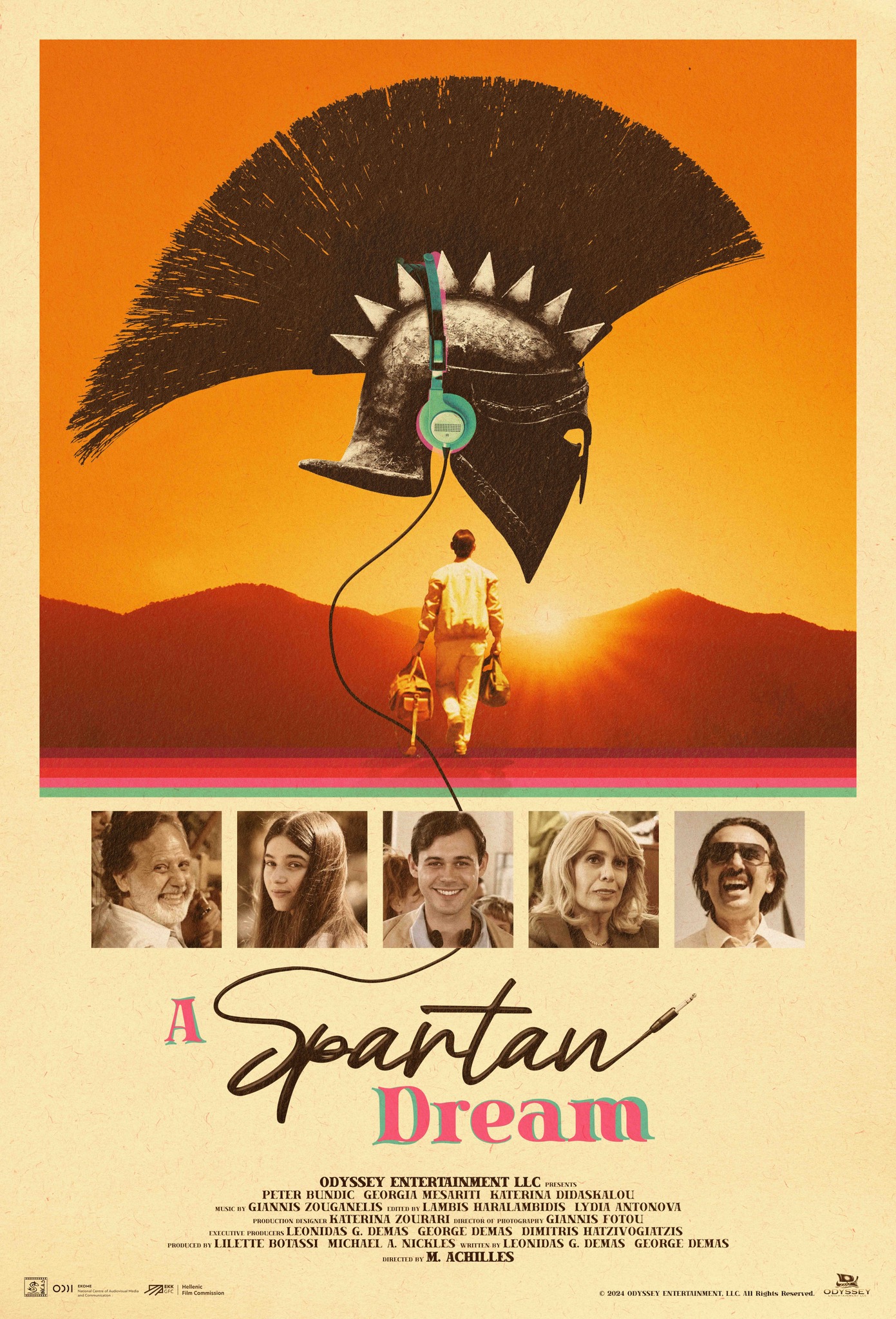
Bill Vergos of Freestyle Digital Media described it as “a delightful story of a young man who ends up fighting for love in an epic battle with history itself.” Which is a fair if generous assessment. The real battle here is between delusion and purpose — and how often the two are inseparable in the haze of first love and inherited identity.
Is it a perfect film? No. At times, it overreaches. At others, it stalls in its own earnestness. But there's a strange courage in that — like a teenager charging at a museum guard with a plastic spear.
And that, I think, is why it works.
In an age of algorithm-written scripts and corporate-safe themes, A Spartan Dream feels like something from another time — not just 1987, but the late ‘70s, when films were still allowed to be strange, slow, and sincere. It's a reminder that sometimes, cinema is about small stories told with big hearts, and big stories told by small, delusional boys who just want to matter.
So no, it won't change the industry. It won't trend on Twitter. But if you find yourself in one of those five cities this August — or thumbing through DVDs like a relic hunter this September — give it a shot.
You might not dream of Sparta. But for 94 minutes, you'll remember what it felt like to believe in something ridiculous.
And that, these days, is worth something.
A Spartan Dream Photos:
